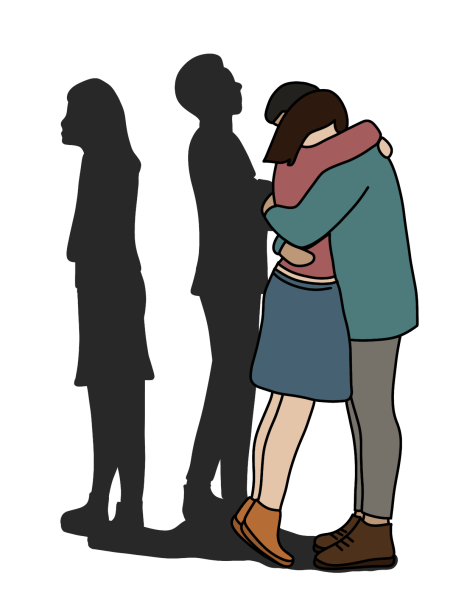Minus the City: Remove the Labels
Recently, I was mulling over life and love with a friend and some Utica Buzz, and my friend asked me, “why are guys always so concerned girls will catch feelings? Like, they just assume that if they hookup x number of times, she’ll get attached.” I was surprised she asked, because the answer is obvious: girls are crazy!
“B****** be trippin’,” an age old adage we all know and love, is easily my favorite way to explain this. Although the vernacular is modern, the idea is not. Any Colgate student who has taken Legacies of the Ancient World is all too familiar with the overly-emotional, frail, psychotic portrayal of women in celebrated works of literature like Homer’s Odyssey. One female character holds Odysseus hostage for sex on her remote island, another turns his crew into pigs and traps him for a year long affair. It’s a patriarchal tool used to disregard women by insisting that different amounts of reproductive hormones cause half of the human population to be irrational, sensitive and, of course, irrationally sensitive.
Although Colgate is significantly better than Ancient Greece in regards to gender equality, the student body is still quick to blame a variety of things on uninformed assumptions of women’s mental health. As a result, girls have to closely monitor the most trivial things they do, never knowing what will be used as evidence that they are, by some unsubstantiated measure, crazy. The frustrating truth about calling a girl crazy, is that it’s never actually intended to make sense of her confusing behavior, but rather to dismiss her and the greater problem surrounding the behavior. People, both men and women, casually assign the crazy label as a scapegoat so that they can continue comfortably judging the situation on a surface level. I see this commonly with the “what are we” talk. Girls can get the crazy label from initiating it, when in most instances it stems from the confusion inspired by a Snapchat-dominated dating and hookup culture. It’s easier to call her crazy than to face the reality that you were leading her on, and she wanted to clarify your intentions.
The filtered ways in which we interact with each other results in confusion on both sides, mainly because we obscure what we really want out of a relationship. Whether it’s friendly, romantic, casual or serious, the go-to defense mechanism is emotional aloofness. We’re never forward about our feelings or motives, so we make assumptions about each other. The result of this behavior is that whenever someone behaves differently than what we want or expect, if they’re a girl we call them crazy, or if they’re a guy we call them a jerk. It’s important to note that jerk is to guys as crazy is to girls; the labels are complementary. Men are also subjected to damaging gender-based labels, but it’s one thing to question a person’s moral character, and an entirely different thing to question a person’s mental stability.
The same gender stereotypes that brought us “crazy” and “jerk” are the answers to my friend’s question. The ideas that men are stone-cold and unemotional, and women have too many feelings to function, are concepts so deeply ingrained in us that we stop communicating properly. We assume that girls will catch feelings and guys won’t. Although this article has been largely heteronormative, I think that all relationships, regardless of gender or sexual orientation, would do well to disassociate gender from behavior, and see individuals as humans, rather than labels.








